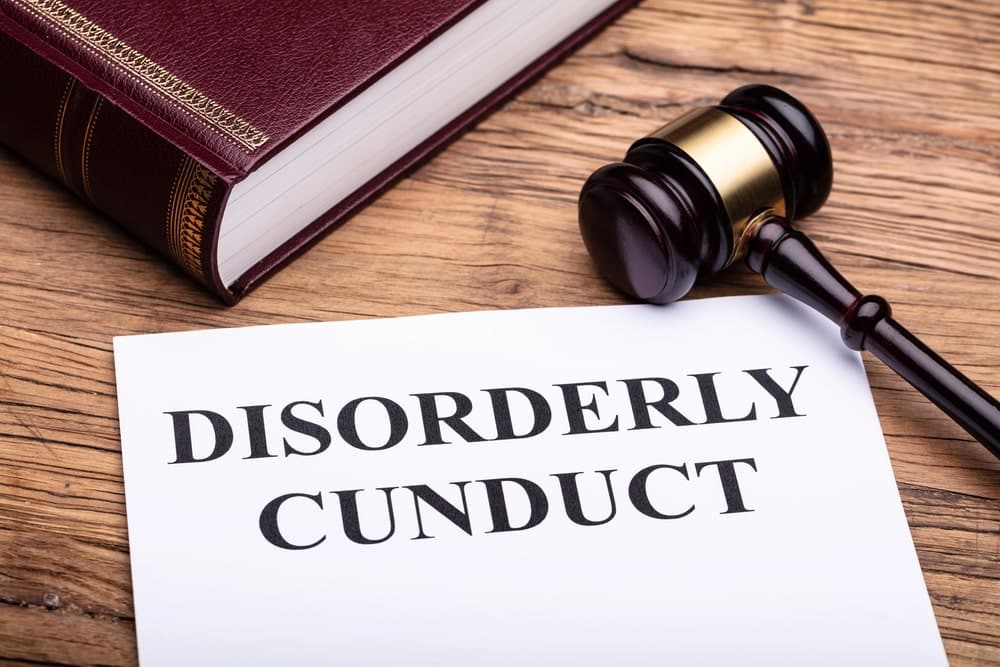When they were writing criminal laws, lawmakers determined that what was going through a person’s mind should be a crucial element in determining how serious of a crime they were committing, or even if they were committing a crime, at all. After all, it’s not very fair if one person made a mistake, and committed a crime, while someone else intended to commit the crime, and both people get the same punishment.
As a result, many laws require that someone had a “culpable state of mind” in order to be convicted for violating them.
Culpable state of mind in Maine
In Maine, we have four different levels of a culpable state of mind. Most of the state’s criminal statutes will say which ones are required, in order to be convicted under the law. These four levels are:
- Intent
- Knowledge
- Recklessness
- Negligence
We’ve already touched on intent in this blog post, and this blog post dealt with knowledge. Now, we’ll delve into what recklessness means.
Acting ‘Recklessly’ in Maine
According to the law in Maine, you act recklessly when you consciously disregard the risk that your conduct will produce a certain result. One example of acting recklessly would be if you were in a crowded room, and decided to swing a baseball bat. Even if you don’t intend on hurting anyone, and even if it’s not a virtual certainty that you’ll hit someone, you are consciously ignoring the high probability that it will. Another example is pointing a loaded gun at someone. Even if you don’t intend on firing the gun, pointing a loaded gun at someone consciously disregards the risk that it might go off.
This is fairly straightforward. However, practically speaking, it’s incredibly difficult to say with certainty that you were acting recklessly. This is because recklessness – as well as all of the other culpable states of mind – is something that happens inside your own head. No one, not even the prosecutor, can read your mind. As a result, recklessness is something that the prosecutor can only prove indirectly, by looking at your conduct for clues that you were acting with conscious disregard for the outcome.
This is easier said than done, especially considering how well the prosecutor needs to do this: In order to convict you for a crime that requires a reckless state of mind, the prosecutor needs to show the jury that you were acting recklessly beyond a reasonable doubt.
How can a criminal defense lawyer help you?
You can make it even more difficult for the prosecutor to convict you of a crime by hiring a good criminal defense attorney. Defense attorneys, like William T. Bly, understand all of the best ways to prevent prosecutors from proving that you had a culpable state of mind, like recklessness, beyond a reasonable doubt.
They specialize in creating those doubts in the minds or jurors, and leveraging those doubts into acquittals at trial. This is often the difference between being convicted for a criminal charge, and facing fines, jail time, and all of the collateral consequences of having a criminal background, and getting acquitted at trial.
Call The Maine Criminal Defense Group if you’ve been accused of a crime: (207) 571-8146.
Call 207-571-8146 or contact us online to schedule a consult with one of our highly skilled criminal defense & OUI lawyers, serving Southern Maine, today.
Blog articles

If you receive a traffic ticket in Maine, you may be facing far more than demerit points or an administrative penalty. You could be facing criminal sanctions and a permanent[...]

In Maine, disorderly conduct laws effectively make disturbing the peace a criminal offense. While disorderly conduct is considered one of the least serious offenses under Maine’s Criminal Statutes, it can[...]

Any criminal charge for a drug-related offense is a serious matter in Maine,but how consequential the outcomes can get may depend on whether the charge is filed at the state[...]


Self-defense laws in the U.S. are complex, vary from state to state, and are often misunderstood. “Stand your ground” laws allow an individual to use deadly force in self-defense in[...]

Every day in Maine, people are charged with crimes that they did and did not do. Fortunately, in the U.S., we have a justice system that says you’re innocent until[...]

Expungement is the practice of legally erasing or striking out documents or information relevant to criminal charges. It’s not possible to expunge a criminal record in Maine. However, other avenues[...]

If you have been arrested or are under investigation for a crime in Maine, it is crucial to retain the services of a competent and experienced criminal lawyer. A criminal[...]

Bail Code in Maine Title 15, Chapter 105 of the Maine Revised Statutes governs all issues pertaining to bail in Maine. When a defendant has been arrested and charged with[...]

In the span of less than 5 decades, computers have utterly transformed our society. Those of the baby boomer generation will be able to appreciate the scale of this transformation[...]


